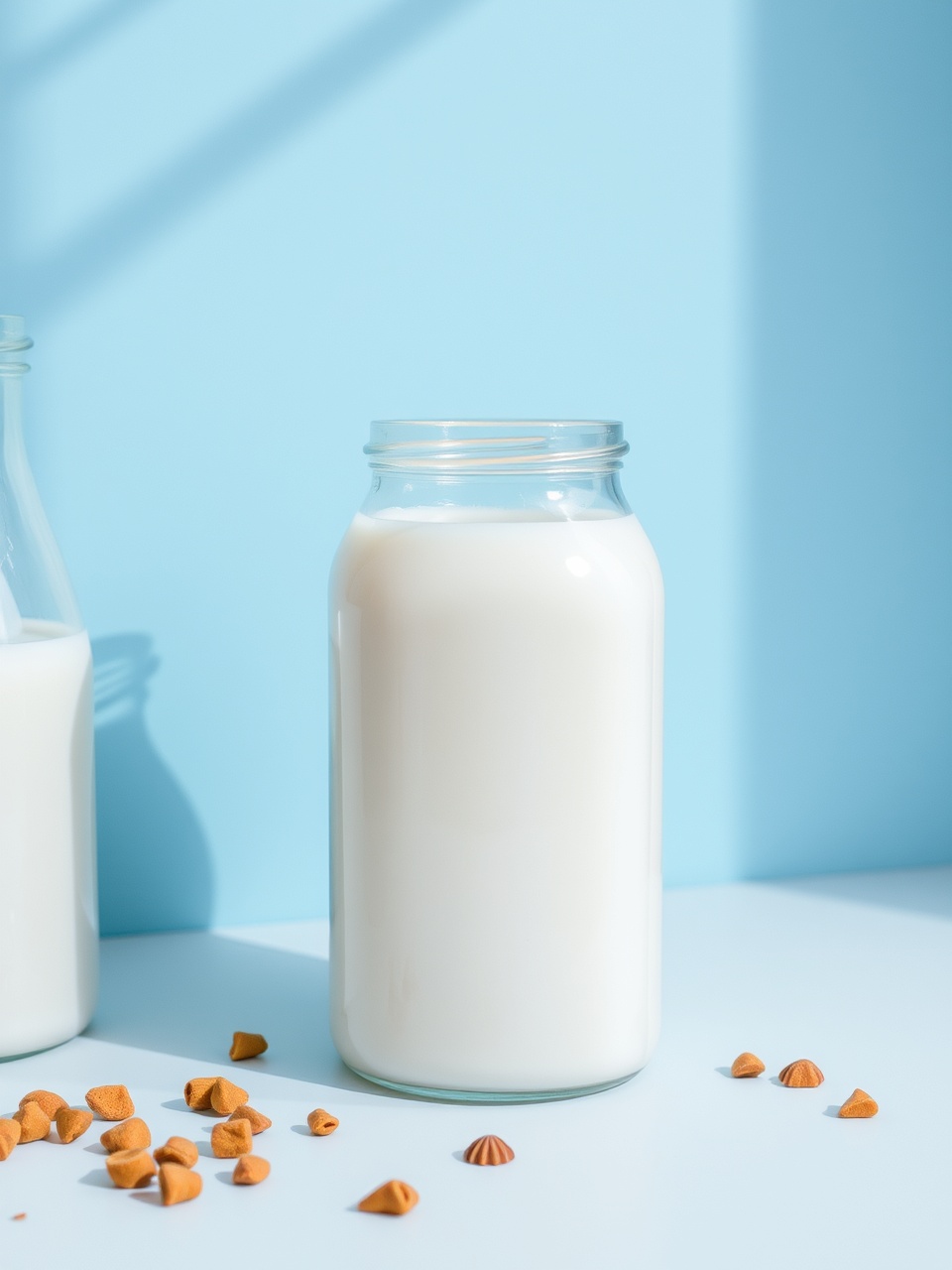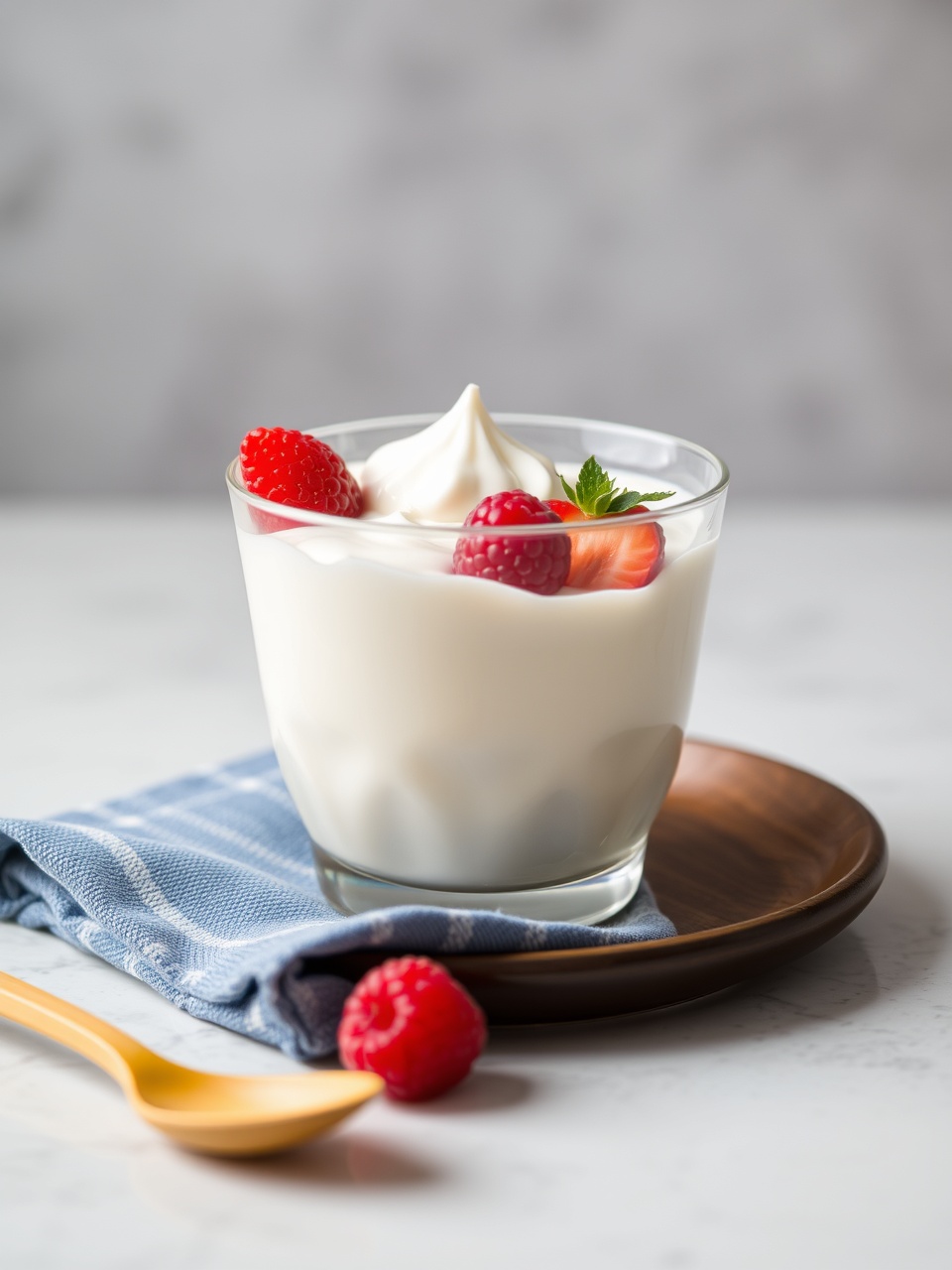Nutritional Value and Health Benefits of Milk

Nutritional Composition (per 100ml whole milk)
- Calories: 60 kcal - balanced energy source
- Protein: 3.2g - high-quality complete proteins
- Carbohydrates: 4.8g - mainly lactose
- Fat: 3.25g - contains essential fatty acids
- Calcium: 120mg - about 12% of daily needs
- Vitamins: Rich in B2, B12, and vitamin D (fortified)
Health Benefits
- 🥛 Supports bone health and prevents osteoporosis
- 🥛 Promotes muscle growth and repair
- 🥛 May help regulate blood pressure
- 🥛 Contains probiotics in fermented products for gut health
- 🥛 Provides essential nutrients for children's growth
Tip: Choose low-fat or skim milk for fewer calories while maintaining calcium and protein content.
Milk Production Process
1
Milking
- Modern dairy farms use automated milking machines
- Cows are milked 2-3 times per day
- Strict hygiene standards are maintained
2
Cooling & Transport
- Milk is immediately cooled to 4°C
- Transported in refrigerated tanks to processing plants
- Quality tests are conducted upon arrival
3
Processing
- Pasteurization: heated to 72°C for 15 seconds
- Homogenization: fat globules are broken down
- Separation: for different fat content products
4
Packaging
- Filled into sterile containers under hygienic conditions
- Different packaging for fresh, UHT, and powdered milk
- Labeled with nutritional information and expiry dates
5
Distribution
- Refrigerated transport to retail outlets
- Maintained at 4°C throughout supply chain
- Reaches consumers within 2-3 days of milking
Summary: Milking → Cooling → Processing → Packaging → Distribution.
Modern Dairy Farming
See how milk goes from farm to table with modern production methods
Delicious Milk Recipes
From breakfast favorites to decadent desserts - explore various ways to enjoy milk!
Milk Recipe Video Tutorials
Follow along with these videos to easily create delicious milk-based dishes and drinks.
.webp)

.jpeg)
.webp)
.webp)